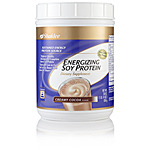Myth 01:
Consuming soy can increase the risk of breast cancer
Lets begin here: (from Medscape)
Breast cancer is the most commonly diagnosed cancer among women, with approximately 182,000 women diagnosed with breast cancer annually in the United States, accounting for approximately 26% of all incident cancers among women.[1]Each year, 40,000 women die of breast cancer, making it the second-leading cause of cancer deaths among American women after lung cancer. The lifetime risk of dying of breast cancer is approximately 3.4%.
Variation among populations:
The international incidence of female breast cancer varies markedly, being highest in the United States and lowest in Asia. However, incidence rates have been rising in traditionally low-incidence Asian countries, particularly in Japan, Singapore, and urban areas of China, as these regions make the transition toward a Western-style economy and pattern of reproductive behavior.[2]
With Breast cancer the most commonly diagnosed cancer, it's obvious why there is cause for concern. However, pointing the finger at the soybean, a legume, is misleading and frankly, a true myth.Breast Cancer & Soy:
Breast cancer and the effects of soy is probably one of the most controversial arguments online or in live conversation. Regardless of who is yelling the loudest, the FACT of the matter is that for more than 20 years the U.S. National Cancer Institute and laboratories around the world have been rigorously investigating the role of soy in breast caner prevention,
yes P-R-E-V-E-N-T-I-O-N!
Why all the testing of soy and breast cancer? Well, as mentioned above, Asian populations who traditionally consume soy as a dietary staple typically have far lower breast cancer rates than populations consuming a typical Western diet. And because roughly 2/3 of breast cancer is estrogen-sensitive, the anti-estrogenic effects of soy isoflavones may actually help decrease breast cancer risk.
In addition, studies have found that soy food and soy isoflavones don't increase breast tissue density or cause breast cells to multiply, unlike hormone therapy. In fact, consuming soy during the early years of life may help to reduce the risk of breast cancer later in life.
 And in two recently published studies, soy consumption has also been shown to actually be associated with reduced recurrence rates and improved survival in people with breast cancer.
And in two recently published studies, soy consumption has also been shown to actually be associated with reduced recurrence rates and improved survival in people with breast cancer.Barbara Klein explains there is evidence of women who have consumed soy all their lives have less breast cancer and fewer recurrences. Even women who have estrogen-sensitive breast cancer are able to eat soy and benefit from it in terms of less recurrence.
Visit www.thefactsaboutsoy.com for additional details, facts Q & A, etc.
So... Soy it up for improved breast health!
Already a soy believer and looking for a natural soy supplement?

I have been consuming the Shaklee protein for over 25 years. I absolutely love that Shaklee soy protein is non-GMO, cold water washed and has no artificial ingredients or sweeteners. Plus it truly tastes great and mixes up well too!
Soy Information adapted from the Shaklee soy brochure #76292



